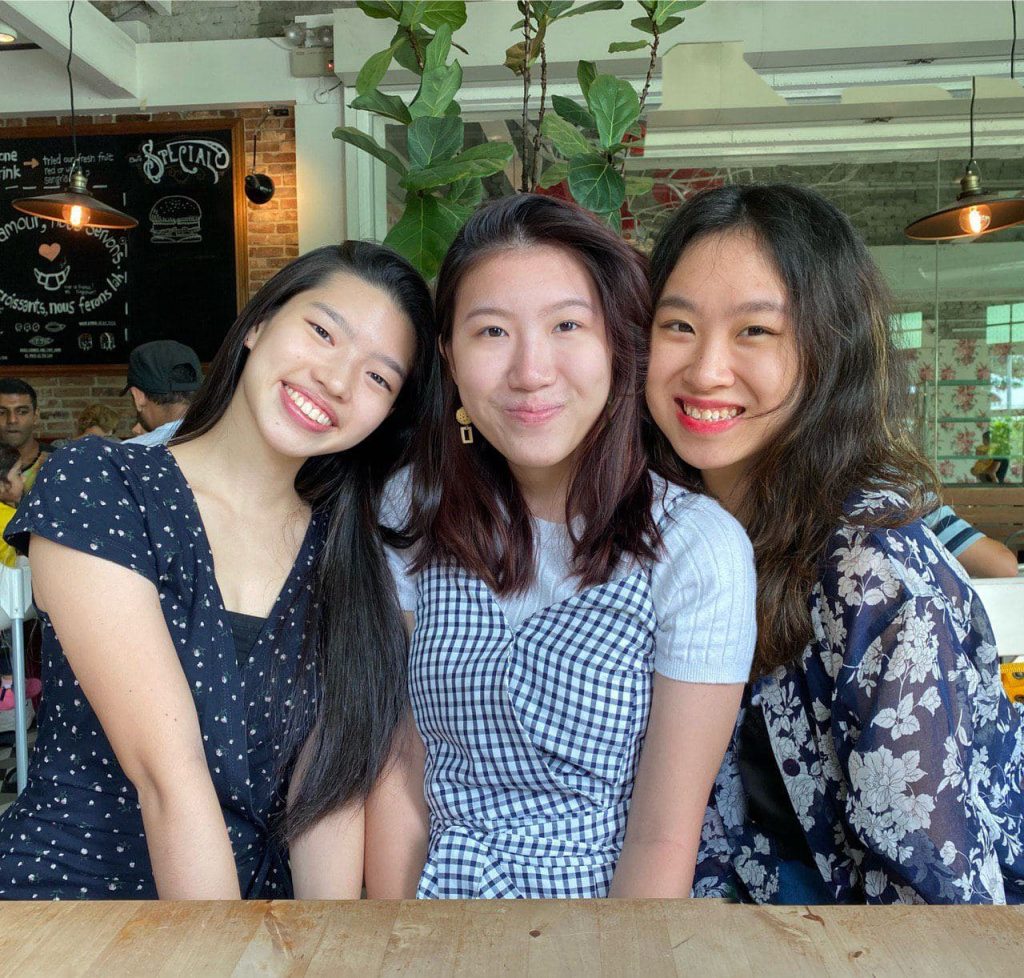
Photo credit: Package Pals
Have you added anything to your digital shopping cart and clicked on the “checkout” button recently?
For many of us, online shopping has become the new norm to get anything that we need, especially during the circuit breaker earlier this year. The Singapore Department of Statistics reported that online sales spiked during the circuit breaker period, with a record high of 24.5 per cent in May, an increase from 8.5 per cent in March and 17.8 per cent in April.
The proportion of online sales out of total retail sales peaked in May at 24.5 per cent, according to data from Department of Statistics Singapore.
Most of the packaging materials that come with our online orders get chucked into the trash without a second thought. However, there are also consumers like Rachel Lee, who keeps the packaging in order to reuse them to pack second-hand items for her online thrift shop on Instagram.
As the Raffles Junior College graduate and prospective law student was selling clothes on her Instagram shop, she noticed other sellers also making an effort to reuse packaging from their own family members’ and friends’ online purchases. She was thinking about the possibility of a centralised system to benefit other sellers as well, when she came across Rachel Han’s query in the environment support Telegram group.
Rachel Han, an Anglo-Chinese School (Independent) graduate on a gap year, had sent a message to an environment support Telegram group asking the members if they knew of any projects related to recycling poly mailers. She had done so as she was looking to set up a centralised system to collect and recycle poly mailers and had also sent out emails to recycling companies.
The two like-minded strangers soon connected, and that’s how the circular packaging initiative – Package Pals – was born.
The two co-founders roped in another member Puan Xin, who was Rachel Lee’s school mate in Raffles Junior College and now freshman at Wee Kim Wee School of Communication in Nanyang Technological University, to take charge of publicity matters. Having started in May, the three 19-year-olds have since recruited volunteers over the months to help with logistics and publicity matters.
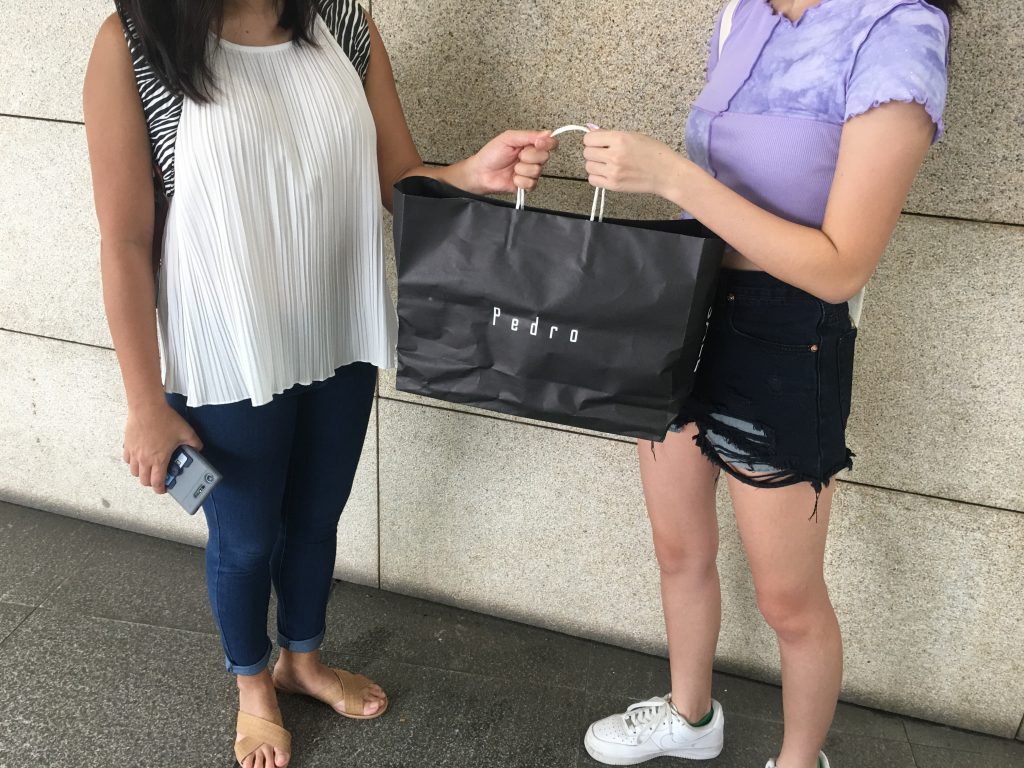
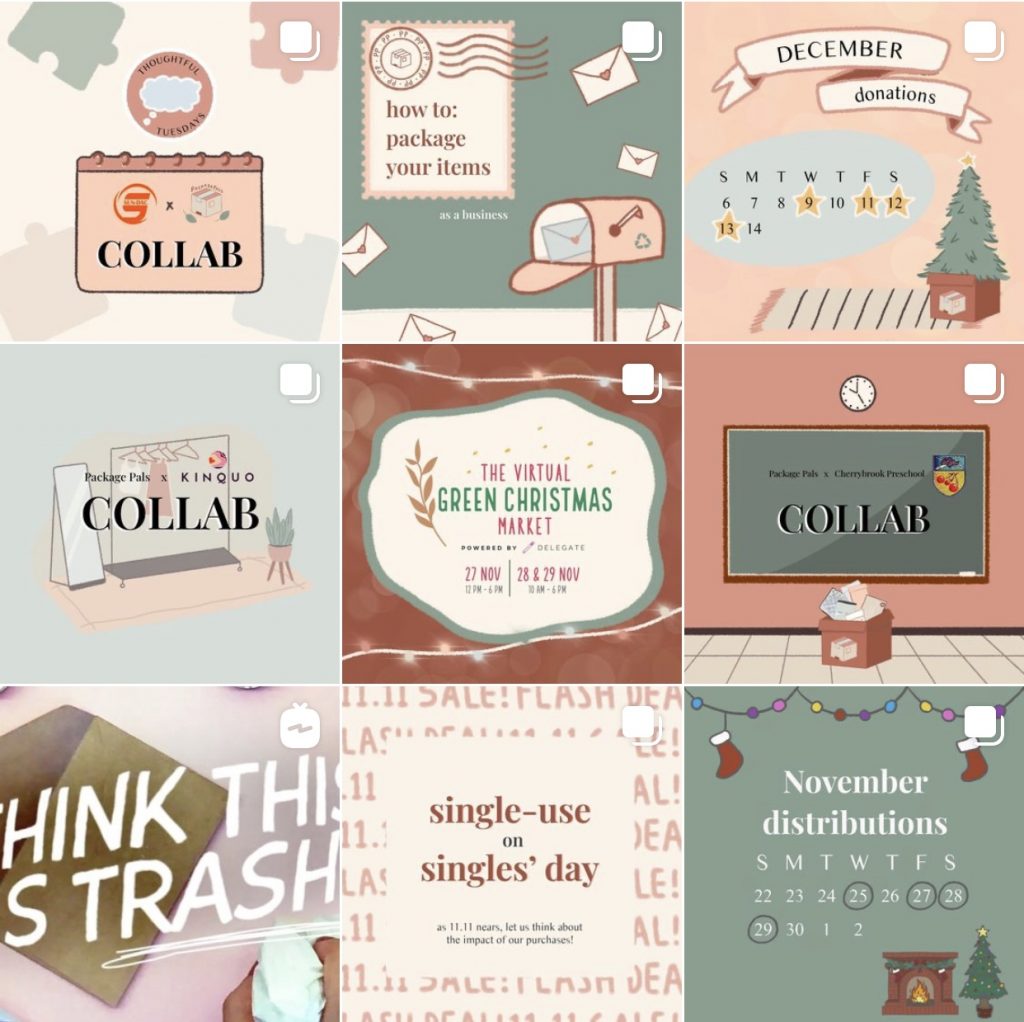
The logistics team collects single-use packaging from donors, sorting them out and conducting quality checks before sending them to local businesses to be reused. On the other hand, the publicity team comes up with ideas for social media posts about e-commerce and packaging waste so as to spread awareness among the general public.
Within just seven months of operation, Package Pals has garnered over 3,700 followers on Instagram and also managed to collaborate with local eco-conscious businesses like The Sustainability Project, Esse and Wellness Within.
They have also attended talks and spoken at webinars like The Virtual Green Christmas Market by Delegate about their passion for tackling e-commerce waste.
Rachel Lee says: “Though we were worried about the receptiveness of our project at first, we’re very thankful for all the attention and support that we’ve been receiving.”
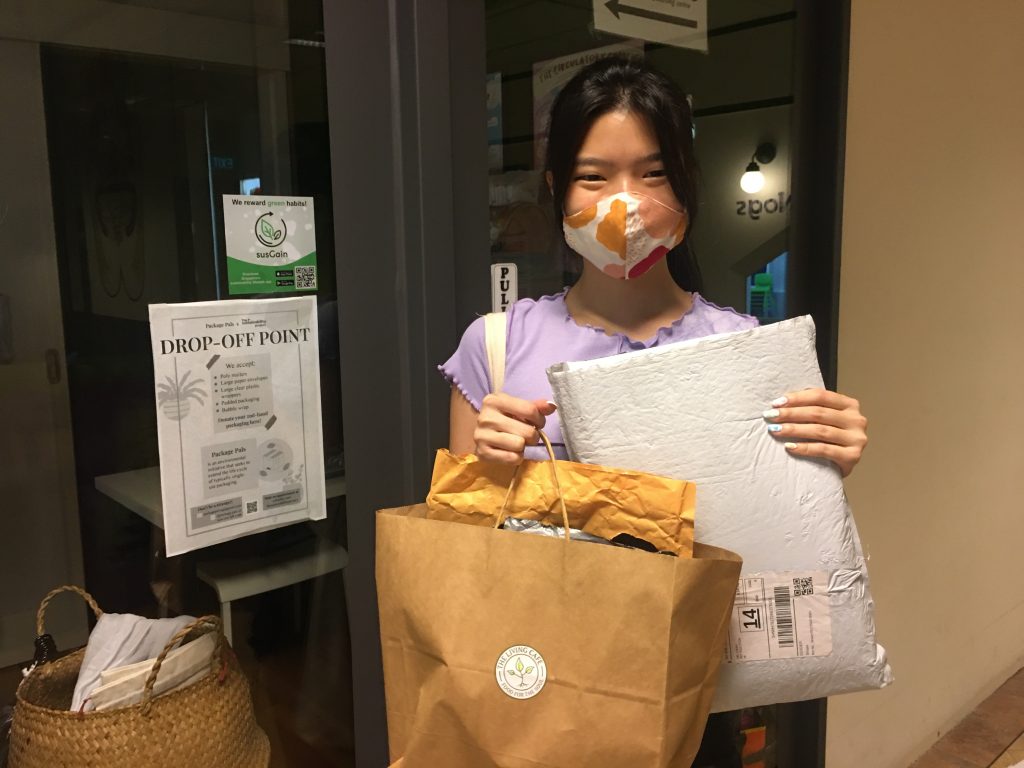
While the trio are grateful for the support they are getting, they have an issue: an oversupply of packaging like bubble wraps and plastic wrappers, and a lack of poly mailers and padded packaging. To solve this issue, they have stopped taking in bubble wraps and plastic wrappers temporarily. They have also ramped up their efforts to get individuals and businesses to order these types of packaging from them to reduce their oversupply.
Another concern for them would be the fear that some people might view Package Pals as a “dumping ground” because they often receive unwanted donations such as packaging they do not accept like boxes, air packets and styrofoam stuffings. They have also received some unusual items like dolls, a whole pack of Milo powder and a wooden duck.
“Although we’ve tried to be more transparent with the process on social media, we don’t have a solution to circumvent this issue as of now, but we hope that donors can be more considerate,” says Rachel Han.
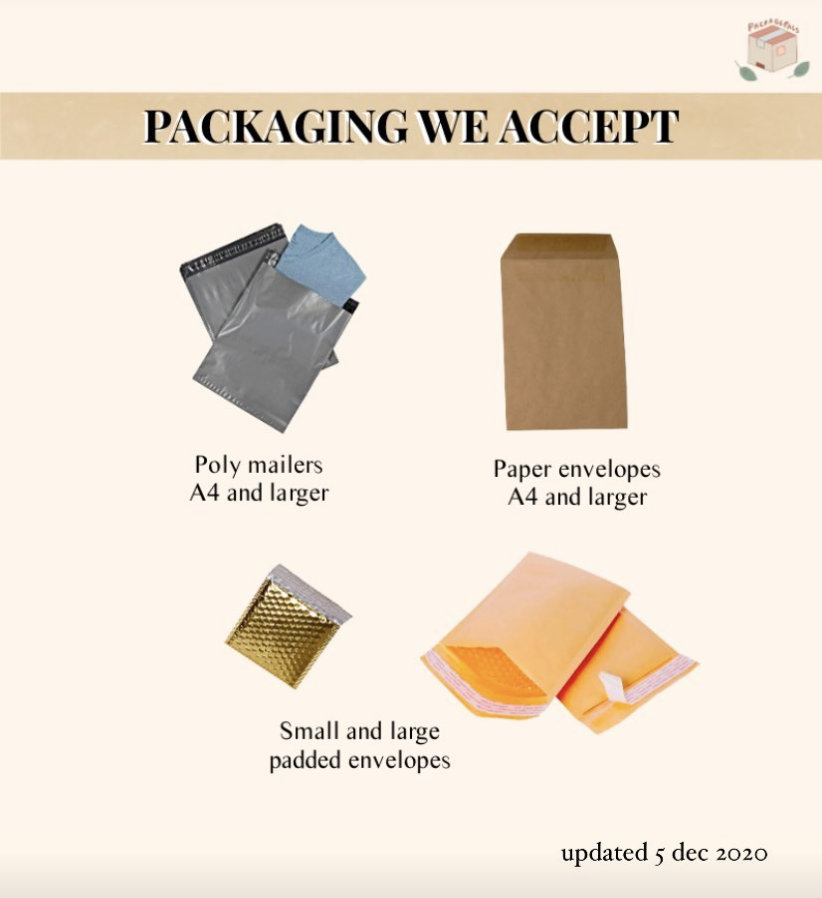
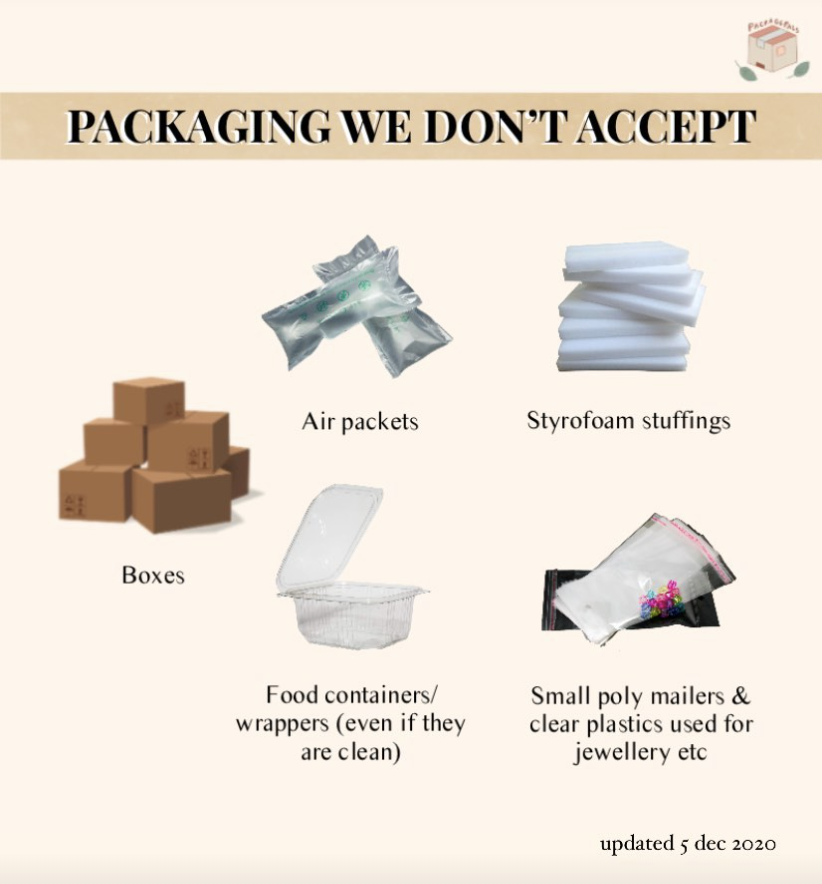
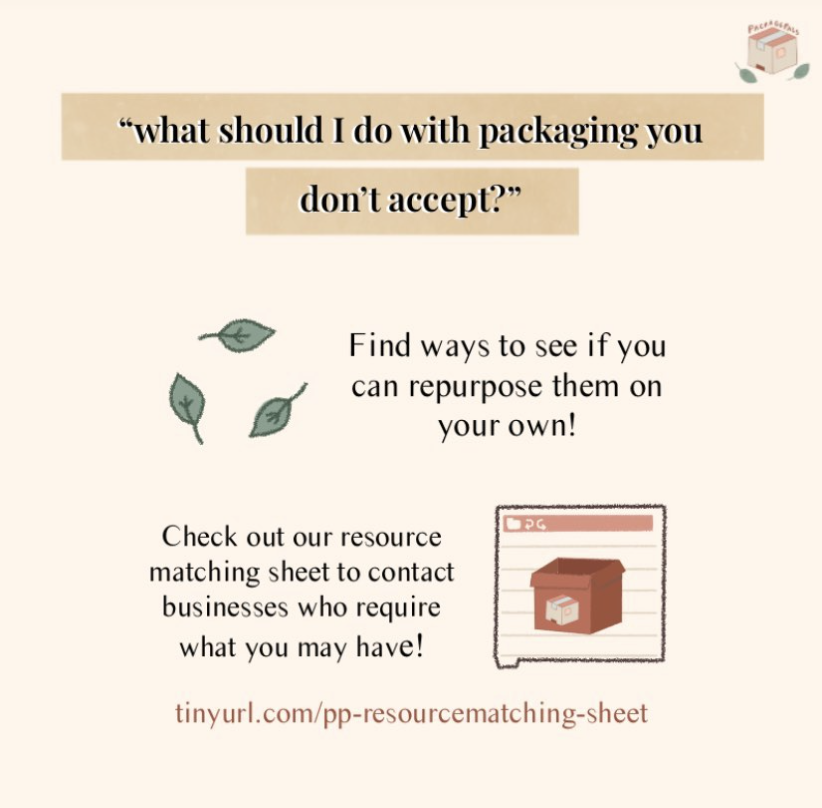
Photo credit: Package Pals
When asked about what young people can do to minimise the harmful effects of their online purchases, the team recommended that they should think twice before buying items and to look out for “greenwashing”, which occurs when companies try to market their products or services as being more eco-friendly than they actually are in reality.
“Though customers may unfortunately be misled by green marketing … it’s not their fault since marketers can throw out a statistic which may not be verified but sounds official enough,” Rachel Lee explains.
Their future hopes for Package Pals include reaching out to more businesses and driving impact in the mass consumer market. They also plan to expand their social media engagement to other platforms such as Facebook and LinkedIn and participate in more events in future.
“Individual actions matter more than you think they do … and while people may question the significance of small actions, those are what has helped us develop a conscious mindset towards our actions and what we consume,” says Rachel Han.
Edited by: Rachel Sin Ka Lam
Proofread by: Quek Si Min
